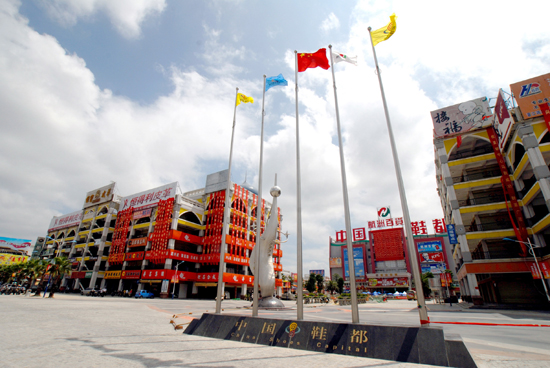An e-commerce platform open to global customers has helped the export volume grow at medium and small-sized Chinese foreign trade companies, according to an insider from the China International Electronic Commerce Center (CIECC).
 |
| Jinjiang city in southern Fujian province is known as China's footwear capital. [Photo/cnews.chinadaily.com.cn] |
The advantages of cross-border e-commerce lie in lower cost, high efficiency and less intermediate links for a lot of traditional companies seeking breakthroughs in sales, said Xie Hejin, CIECC’s Fujian general representative.
He made the remarks at a trade fair jointly held by CIECC and the local government in Jinjiang city of Fujian province on April 18. More than 40 representatives from around the globe signed procurement letters of intent with more than 200 enterprises in Jinjiang.
With continuing economic reforms and technical innovations, Jinjiang has maintained economic growth. But the recent global economic downturn has imposed a threat to Jinjiang’s foreign trade firms and forced them to make new moves on more frontiers, Xie added.
Last year marked a milestone for Jinjiang’s private companies as many of them expanded their business on e-commerce platforms. More than 70 percent built online outlets. Currently there are more than 7,000 online stores with trade volume reaching 38 billion yuan ($6.1 billion) in 2013, the most in Fujian province.
An increasing number of Chinese enterprises have stretched their tentacles to cross-border e-commerce in overseas exports, which plays a big role in cutting down costs and raising collection rates, Xie said.